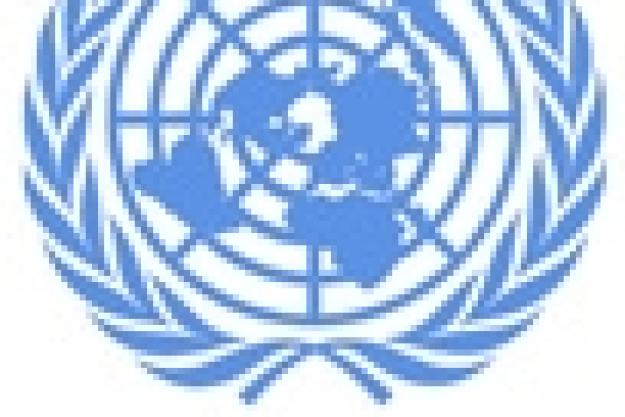
On 23 February 2007, at the invitation of the President of the United Nations Security Council, the Foreign Minister of Slovakia, H.E. Mr Ján Kubiš, the Director-General of the Organisation for the Prohibition of Chemical Weapons (OPCW), Ambassador Rogelio Pfirter, briefed the Council on cooperation between the Security Council and the OPCW in the implementation of resolutions 1540 (2004) and 1673 (2006).
Representatives of the International Atomic Energy Agency (IAEA) and the World Customs Organization (WCO) also delivered briefings to this open session of the Security Council. In the following debate, delegates from all fifteen members of the Security Council, as well as a further seventeen United Nations Member States, took the floor.
In his presentation to the Security Council, Director-General Pfirter highlighted the important role the OPCW plays in chemical disarmament and non-proliferation, in particular given the threat of chemical terrorism. In rejecting the use of toxic chemicals to cause harm under any circumstances, he recalled that 181 States have joined the Chemical Weapons Convention (CWC), and together with the Members of the United Nations, have unanimously condemned the use of poison gas. In the strongest possible terms, Director-General Pfirter denounced the recent multiple use of chlorine gas by groups in Iraq to kill and injure unprotected, innocent civilians. He called upon all governments, whether or not they are Parties to the Chemical Weapons Convention and particularly those in the Middle East region, to join him in stating clearly that the use of poison gas is unacceptable.
As illustrated tragically by this grievous incident, he stressed that an attack with ordinary toxic chemicals or an attack on a chemical industrial site does not require great resources or sophisticated networks and is, therefore, a very real threat, requiring a high degree of attention by all States. In this regard, the OPCW’s efforts to bring about a comprehensive prohibition on chemical weapons are indispensable to the larger objectives of the United Nations in promoting international peace and security.
Noting that the implementation of the UN Global Counter-Terrorism Strategy, as well as resolutions 1540 and 1673, depend upon effective multilateral cooperation, Director-General Pfirter drew attention to the correspondence between the obligations assumed by States Parties under the CWC and the implementation measures set out in resolution 1540. By denying any form of support to non-State actors that attempt to develop or acquire weapons of mass destruction, in addition to adopting all necessary national measures to apply the ban on chemical weapons to every national, he stated that CWC States Parties are meeting both their general obligations, as well as fulfilling key provisions of resolution 1540.
In elaborating the contributions the OPCW can make to the United Nation’s anti-terrorism efforts, Director-General Pfirter explained that States Parties that meet all of the CWC’s national implementation requirements are ensuring that dangerous chemicals are not misused in any manner, including for terrorism. Ambassador Pfirter informed the Security Council that through the OPCW National Implementation Action Plan, the Organisation’s resources and those of many of the 181 OPCW Member States are being offered to assist any State Party in its full and effective implementation of the CWC.
In order to establish a total ban on chemical weapons, Director-General Pfirter underscored that the fact that both the CWC and resolution 1540 call for the CWC’s universal adoption and full implementation. He reminded the Council that 14 States had failed to join the Convention and their non-adherence continues to be an issue of concern, including, in certain cases, as regards non-proliferation.
In conclusion, Director-General Pfirter reiterated the OPCW’s readiness to continue cooperating with the Security Council in its central role and primary responsibility to preserve and protect international peace and security.
Council President Kubiš expressed the Council’s appreciation for the work of organizations with relevant expertise such as the OPCW, especially in providing assistance in the implementation of resolution 1540, without altering their mandates and responsibilities. He stated that the Security Council was mindful of the need to share experience with international, regional and sub-regional organizations in areas covered by resolution 1540, and to explore the availability of programmes which might facilitate the implementation of the resolution.
PR10 / 2007
